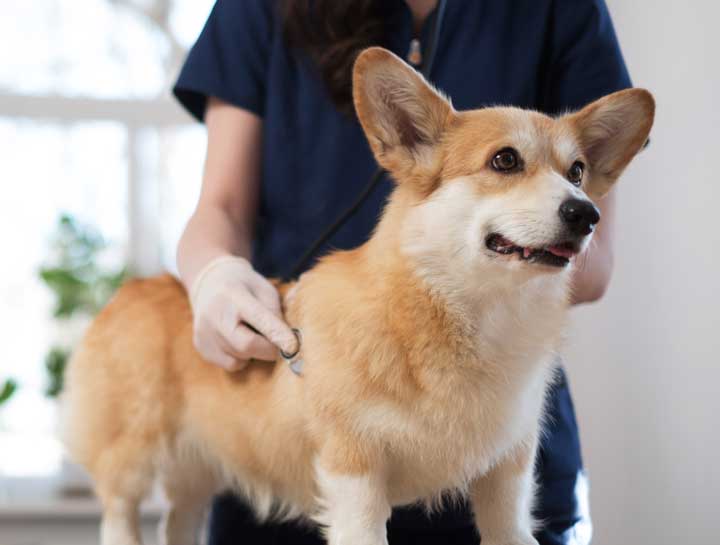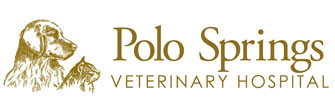Pulmonology
Diseases of the respiratory tract.
Pulmonology involves diseases of the respiratory tract. The respiratory tract starts with the air passages in the nose and extends down through the pharynx, larynx (voice box), trachea (windpipe), and lungs. Respiratory disease can range from something as mild as an upper respiratory infection to life-threatening fluid accumulation in the lungs of a dog or cat. If certain respiratory conditions worsen, your pet may even experience respiratory distress (trouble breathing). This will be very scary for both you and your companion and of course, requires immediate veterinary attention. As with any disease process, the sooner we are able to assess and diagnose your pet’s illness and subsequently begin treatment, the better your companion’s prognosis will be. On occasion, we will see patients that are experiencing some subtle signs of breathing difficulty that their owners have not noticed. These subtle signs may include an increase in a pet’s respiratory (breathing) rate while the pet is at rest or a mild increase in the depth of a pet’s breath. If you are ever unsure if your pet needs an examination by a veterinarian, please give us a call. We are always here to help you.
One of the most common reasons we see a dog or cat at Polo Springs Veterinary Hospital is for coughing or sneezing. These symptoms are especially common in newly adopted pets. Frequently, these patients have an upper respiratory infection, however, we can and do see pets that have a more severe infection involving the lungs (ie pneumonia). Thankfully, vaccines such as Bordetella bronchiseptica and canine influenza are available to try to prevent common causes of this serious condition. While respiratory infections are a frequent cause of coughing in our pets, there are many other disease processes that may result in a cough. Sometimes a cough in a small breed dog is related to a malformed trachea and not an infection at all. In cats, we see wheezing that can be mistaken for coughing but is actually related to an asthmatic condition. Patients with a cough could also be suffering from heartworm disease, cardiac (heart) disease, allergies, cancer, lungworms, etc. Reverse sneezing is another common condition we see. The manifestation of this condition can be so alarming to owners that they may rush their pets in to see us for fear that they are unable to breathe. Reverse sneezing dogs will typically make a series of strange snorting sounds that seem like a sneeze being sucked inwards instead of blown out. Reverse sneezing has a variety of causes including (but not limited to) irritation to the back of the throat (water up the nose), nasal mites, allergies, nasal foreign objects, and respiratory infections. Regardless of the type of respiratory symptoms your pet is experiencing (coughing, sneezing, nasal discharge, wheezing, increased breathing rate or effort, etc.) any pet displaying respiratory signs should be thoroughly examined by a veterinarian. This is important not only to diagnose your pet’s problem but also to ensure that your pet is not suffering from a condition that could progress to life-threatening respiratory distress.
Respiratory distress (trouble breathing) is a true emergency. This involves the pet struggling to breathe (rapid respiratory rate or increased respiratory effort) or gasping for air. In extreme cases, the gums in their mouth will turn white or blue instead of a healthy pink color. This life-threatening scenario may be the result of many disorders such as pneumonia, trauma to the lungs, severe heart failure, smoke inhalation, near drowning, bleeding disorders where the lungs or chest cavity fills with blood, cancer, and paralysis of the larynx. A pet displaying any signs of difficult breathing requires immediate veterinary attention.
At Polo Springs Veterinary Hospital, your companion will receive a thorough and complete physical examination by one of our highly trained veterinarians. We will also ask you a series of detailed questions regarding your pet’s illness. Because there are so many diseases that can cause a pet to have signs and symptoms of a respiratory problem, the questions, and physical exam are the essential first steps in helping your pet. Once your pet’s condition has been fully assessed, a diagnostic and/or treatment plan will be developed. We have a multitude of diagnostic tests at our fingertips in the event that testing is necessary to diagnose your pet. Our board-certified veterinary radiologist is also readily available if needed. Once we are able to evaluate your pet, we will be with you every step of the way to help return them to their happy and healthy self once again.
Call us at (719) 249-5835 today to schedule an appointment for your cat or dog.

